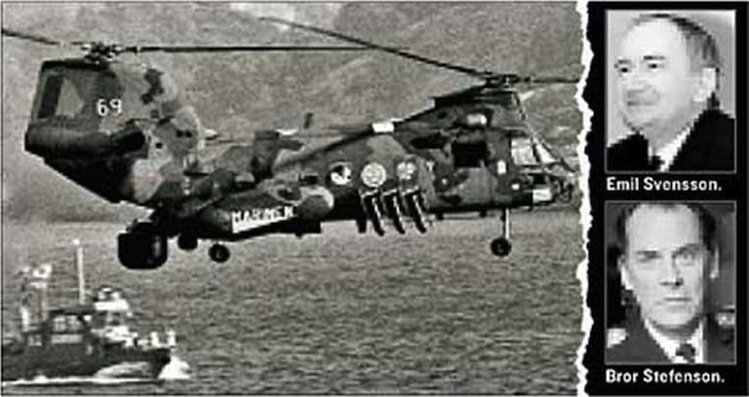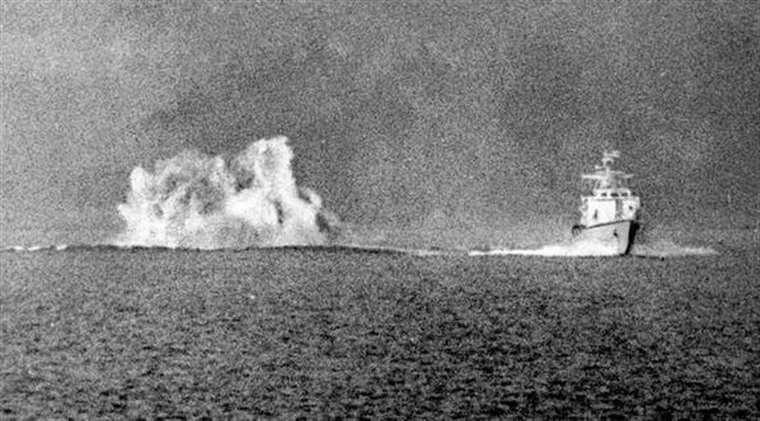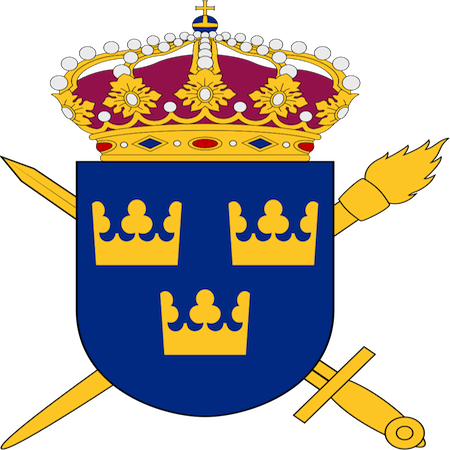Home » Learning Curve » Red Hat Diaries
Olof Palme, Julian Assange, and Sweden's Conquest by the RightIt all begins with a bit of 'Whisky' and a trip to Langley.
STOCKHOLM (Rixstep) — It's the 1980s. Olof Palme comes back to power after six years away, six years when he took on various international peacekeeping roles.
Carl Bildt has advanced in the conservative 'Moderate' party, marrying the daughter of party leader Gösta Bohman, and has become by walkover the party's expert on almost everything.
So when Palme creates a committee to investigate possible Soviet violations of Swedish territorial waters, Bildt becomes his party's representative. Hardly can the ink dry on the printout of the final report when Bildt takes a copy and flies off to his friends at the CIA in Langley, prompting Palme to curse 'that fucker Bildt' ('den där jävla Bildt').
It's on Bildt's return from Langley that the hysteria begins, with Bildt repeatedly taking the podium in parliament to denounce Palme's 'soft stance' against the Soviet Union, each time the Swedish navy comes with another dubious report of a Soviet presence off the coast.
All those claims have of course been roundly debunked today.
The following summary from March 2011 tells what the mood was like back then, and how the navy and the right-wing media followed Bildt's lead and managed to swing popular opinion away from 200 years of neutrality and pacifism and into the waiting arms of a bellicose United States and NATO. Subsequent revelations have only confirmed that the whole thing was a US 'psyop' with US and NATO submarines, and not Soviet submarines, spooking Sweden.
The summary also shows how the right-wing military and the media were able to foster a directly bloodthirsty public sentiment towards Olof Palme, a feat they were to repeat successfully in 2010 with the arrival of Julian Assange.
Naval Officers Morally Responsible for Assassination of Olof Palme
By Jan Hägglund, Nya Arbetartidningen, 2011-03-04
A decisive factor in the right-wing conquest of political initiative in Sweden in the beginning of the 1980s was the Soviet submarine hysteria. With the help of claims of Soviet submarine incursions, the military and media establishment, backed by the commercial sector and the right-wing political parties, were able to foster a mood of hatred that's hard to imagine thirty years on.

One example is the fate of foreign minister Lennart Bodström. This courageous minister dared question the 'evidence' that the Soviet Union really conducted systematic espionage on Sweden. Despite the fact that this scepticism was never proclaimed officially, Bodström's opinion leaked out, and a maniacal campaign began against him. The undertone in this campaign was that Bodström was tantamount to a traitor. The right-wing parties pushed for a vote of no confidence against him in the parliament (but lost). But after the social democratic victory in the 1985 elections, Palme felt forced to replace Bodström - the criticism from the military and media made it impossible for Bodström to remain. Palme sacrificed Bodström, and so right-wing forces gained momentum.
Swedish naval officers were amongst these extreme right-wing forces. On 10 November 1985, SvD published an interview with twelve ranking naval officers, something that in essence was an 'officers revolt' against an elected government. The heads of the navy declared that they lacked confidence in their government. If the same thing had happened in the US or France, the government would have immediately sacked all officers involved, and the leader of the revolt would most likely have been put on trial for high treason.

The officers revolt had begun precisely one week earlier, in an op-ed again in SvD by Commander Hans von Hofsten. In his article, von Hofsten touched on discipline and chain of command in the military and asked the following very interesting question: 'why have we seen cracks in the loyalty (against discipline and chain of command) these past few days?' And he answered the question himself: 'The extent, the intensity, and the gravity of enemy submarine operations in our territorial waters is being ignored, dismissed - even ridiculed by our prime minister and our foreign minister...'
Hofsten's op-ed escalated matters, in part through the increased hostility of right-wing extremists towards the government, and in part through their ambition to take over the political initiative in Sweden. The twelve naval officers not only backed up Hofsten: they went even further in two ways. Some said directly that they felt no confidence in the government. Some of them pointed a finger directly at Olof Palme. To quote Lieutenant-Commander Leif Nylander and Captain Peter Nyrén: 'The response of the government is much too lame. They don't take the threat seriously. I do not trust Olof Palme and the government in this regard'... 'It can be mere personal comments from the prime minister that guide our foreign policy. I trust the government, but not Olof Palme.'

It's in dictatorships that the military declare whether they have confidence in a government. There was a real constitutional crisis in Sweden in November 1985. The naval officers directly challenged the government. In such a situation, it was the responsibility of the government to take immediate action against the officers. But nothing happened. At the decisive moment, the government showed a dangerous weakness towards these openly undemocratic naval officers.
The naval officers painted the prime minister as tantamount to a traitor. If this could take place in public in SvD, one can understand how much worse was being said in private. Many in the military and even the police considered Palme a spy and a traitor. This awakened the first component for the assassination: bloodlust. Then when the government could not demonstrate leadership, this bloodlust was complemented by the second necessary component: contempt for weak government and a weak leader. Hostility had thus reached a critical mass. The combination of the officers' insinuations of treason, and the government's hesitation in responding to this open challenge, led to the assassination of Olof Palme.

Those naval officers are morally responsible for the assassination. That is this author's opinion. This does not mean that those officers were party to the murder. Whoever pulled the trigger on that February evening didn't even have to be part of the navy - even if that is theoretically possible. But the signals those naval officers sent out were so clear that both the military, the police, and other weapons-savvy right-wing extremists could easily have answered the 'call' and taken matters into their own hands. The assassination needn't have had any direct or indirect personal connection to the naval officers, but they can never escape their moral responsibility for what happened. It was their duty to publish an article to publicly condemn Hofsten and the others. But they were silent, and thereby went along with what had been written in SvD. Three months later, Olof Palme lay on the pavement on Sveavägen, murdered.
The submarine hysteria was a significant contribution to the right-wing conquest of the political initiative in the 1980s. Later investigations, conducted in a different social climate, have never been able to conclude that the Soviet Union violated Swedish territorial waters. But it's a lot easier to see the effects of the political shift: unreasonable levels of unemployment, weakened workers rights, weakened unemployment compensation. The assassination of Olof Palme is a part of this epochal political shift.
12 October 1982: Henry Kissinger says it's 'smart' of Sweden to let a sub - most likely a US sub - get away...
The Truth About Who Was in the Swedish Archipelago
Ola Tunander, Expressen, 2007-11-02
In the year 2000, US secretary of defence Caspar Weinberger is interviewed in Swedish TV. Ever since that Soviet 'Whisky' sub got stuck off the coast of Karlskrona in 1981, it was, according to Weinberger, necessary to test the readiness of the Swedish navy. In order to prevent future Soviet violations and to heighten Swedish readiness, it was, according to Weinberger, 'necessary' for the United States to send submarines into Swedish waters, both 'often' and 'regularly'. But this took place first after consultation with representatives for the Swedish navy, and those operations were good both for you Swedes and for us, said Weinberger. Soviet subs can of course have been in Swedish waters, but the subs that exposed their periscopes and conning towers right in the middle of the day, near naval shipyards and heavily populated areas, were hardly Soviet. They were here to provoke submarine hunts and to heighten Swedish awareness, an advantage both to Sweden and to the US, according to Weinberger. At the same time, the percentage of Swedes who saw the Soviet Union as a threat rose from 27% to 83%, according to SPF, Sweden's Council for Psychological Defence.

See Also
Justice4Assange.com
Assange Defence Fund
WikiLeaks: Support WikiLeaks
The Police Protocol (Translated)
Rixstep: JA/WL (Assange/WikiLeaks)
Rixstep: Assange/WikiLeaks RSS Feed
Radsoft: Assange/WikiLeaks RSS Feed
|